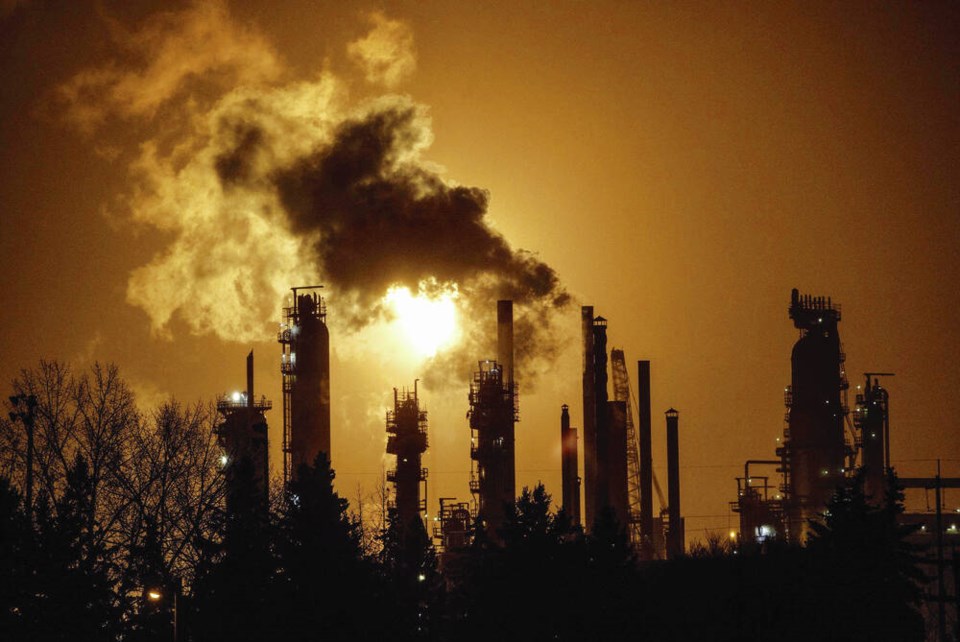While the tobacco industry is the prime example of an industry that ruthlessly pursues profit regardless of the human cost, it is not alone.
A number of other industries’ activities result in millions of unnecessary deaths annually, but it is the fossil-fuel industry that has been labelled “the new tobacco.”
Not only does it blithely disregard the wellbeing of both people and the planet in its ruthless pursuit of profit and power, it does so using many of the same tactics — and even the same consultants — as the tobacco industry.
In December 2022, UN Secretary General Antonio Guterres said the industry has “exploited precisely the same scandalous tactics as big tobacco decades before,” noting “for decades, the fossil fuel industry has invested heavily in pseudoscience and public relations — with a false narrative to minimize their responsibility for climate change and undermine ambitious climate policies.”
The results of that intransigence are plain to see in the extreme weather we have experienced in recent years in Canada and around the world.
Earlier this month, Copernicus, the European Union’s climate change service, announced that 2023 was the warmest year on record, coming close to the 1.5 degrees C above pre-industrial level that the world had pledged to work to avoid just a few short years ago.
“Every year for the rest of your life will be one of the hottest [on] record,” wrote Prof. Andrew Dessler of Texas A&M University in a Jan. 9 article in The Guardian.
“This in turn means that 2023 will end up being one of the coldest years of this century. Enjoy it while it lasts.”
The environmental and health impacts of climate heating alone are extensive and worrying. The World Health Organization has pointed to “death and illness from increasingly frequent extreme weather events, such as heatwaves, storms and floods, the disruption of food systems, increases in [infectious] diseases, and mental health issues.”
In addition, the economic and social impacts of environmental changes can undermine social determinants such as employment and income.
These impacts of climate heating would be bad enough on their own, but the Environmental and Energy Study Institute, a non-partisan American organization founded in 1984 by a bipartisan group of members of Congress, identifies the following impacts of fossil fuels, in addition to those related directly to climate heating: ocean acidification, plastic pollution, air pollution, water pollution, oil spills and health issues.
To this we should add habitat destruction related to fossil-fuel extraction and the threat to coral reefs from higher ocean temperatures.
With respect to health issues, the Global Climate and Health Alliance noted in a July 2022 briefing: “Health is impacted throughout the entire cycle of fossil fuel use … from extraction, through processing, transport, combustion and waste disposal.”
A 2016 report from the Union of Concerned Scientists notes: “Extraction processes can generate air and water pollution, and harm local communities. Transporting fuels from the mine or well can cause air pollution and lead to serious accidents and spills… . Even the waste products are hazardous to public health and the environment.”
The World Health Organization estimates that outdoor air pollution alone — much of which is due to fossil-fuel combustion — caused 4.2 million premature deaths worldwide in 2019, with 89% of those deaths occurring in low- and middle-income countries.
However, a 2021 study using more recent studies and looking only at fine particulate matter from fossil-fuel combustion estimated there were 8.2 million premature deaths in 2018 due to air pollution from fossil-fuel combustion, which rivals the death toll due to tobacco.
Yet the fossil-fuel industry is paying no heed, as I will show next week.
It is contemptuously spitting in the face of the science and threatening the wellbeing of vulnerable people around the world, today’s children and youth and billions of people yet to be born, not to mention the stability of ecosystems and the survival of countless other species, by doubling down on growth.
In this, it is supported by massive and growing private-sector investments and continuing support from governments.
The intransigence of the fossil-fuel industry and its supporters has surely earned it the title of “planetary health enemy #1.”
Dr. Trevor Hancock is a retired professor and senior scholar at the University of Victoria’s School of Public Health and Social Policy.
>>> To comment on this article, write a letter to the editor: [email protected]



